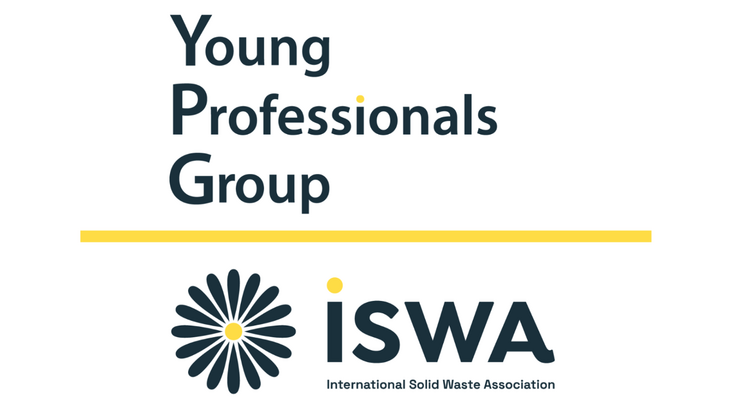Young Professionals Group : Transforming Waste Management: Insights from the ISWA YPG workshop in Cape Town

The International Solid Waste Association Young Professionals Group (ISWA YPG) is a dynamic global network dedicated to fostering sustainable waste management practices among young professionals below the age of thirty-five. Established with the mission to promote and develop professional waste management worldwide, ISWA YPG aims to facilitate knowledge sharing and collaboration among its members. Comprising 137 members from 41 countries, the group is characterized by a diverse membership, with a balanced representation of genders and various professional backgrounds. ISWA YPG operates through several active working groups focused on enhancing education, research, career development, and local networking. These groups engage in many activities, including webinars, conferences, and community outreach programs, all designed to increase awareness of waste management issues and the principles of a circular economy.
On September 18, 2024, ISWA YPG, in collaboration with the United Nations Environment Programme (UNEP), hosted a significant workshop at the ISWA World Congress in Cape Town. This workshop focused on the critical theme of job creation within the waste sector, emphasizing the role of technological innovations and the circular economy as catalysts for employment, particularly for youth.
The workshop brought together a diverse group of participants who engaged in discussions about the opportunities and barriers faced in the waste management sector. Here are some of the key findings:
Opportunities for Job Creation
Technological Innovations
Emerging technologies like Artificial Intelligence (AI) and the Internet of Things (IoT) were identified as pivotal in enhancing operational efficiency and creating new job roles. These technologies can streamline waste management processes, making them more effective and environmentally sustainable.
Circular Economy Initiatives
Transitioning from traditional waste disposal methods to circular economy practices presents significant job creation potential. Activities such as recycling, refurbishing, and waste reduction can generate employment opportunities.
Environmental Compliance
Integrating environmental sustainability into business models is crucial. As companies increasingly prioritize eco-friendly practices, there will be a growing demand for skilled professionals in sustainability sectors.
Despite the promising opportunities for job creation in the waste management sector, several barriers hinder progress. First, there's a significant educational gap; current educational frameworks often fail to equip young professionals with the skills necessary for modern waste management practices, highlighting the urgent need for curricula that align more closely with industry requirements. Additionally, negative perceptions surrounding waste management careers deter many young people from pursuing opportunities in this field. A stigma exists that portrays these jobs as undesirable, especially for the informal sector working conditions, underscoring the importance of awareness to shift these attitudes and promote the critical role of waste management in sustainability. Furthermore, coordination challenges within the sector pose another barrier. The lack of collaboration across different sectors, particularly within supply chains, hampers the development of sustainable business models. Lastly, the high transition costs to circular economy models can be perceived as prohibitive for businesses, creating a significant deterrent to adoption.
Actionable Ideas for Moving Forward
The workshop concluded with some actionable ideas aimed at enhancing job prospects and industry development in the waste management sector:
- Rebranding the Waste Sector: Initiatives to change the narrative around waste management careers can attract more young professionals.
- Launch Awareness Campaigns: Public campaigns that emphasize the importance of proper waste management and the potential for sustainable practices can help reshape societal perceptions.
- Educational Reforms: Reforming educational systems to focus on green skills and waste management can prepare the next generation of professionals for careers in this essential field.
- Support for Startups and Innovation: Encouraging eco-friendly startups through financial support and mentorship can spur innovation in waste management practices.
- Formalizing the Informal Sector: Policies that support the integration of informal waste workers into the formal economy can enhance job security and improve working conditions.
The ISWA YPG workshop in Cape Town provided a platform for discussing the future of job creation in the waste management sector. By addressing the barriers and leveraging the opportunities presented by technological advancements and circular economy practices, stakeholders can work together to create a more sustainable and inclusive waste management landscape. The YPG will take what it learned from this workshop for its future activities; you can follow its work and become a member of ISWA/ISWA YPG to join hands with like-minded people.
Links
Online Discussions and Meetings: https://ypg.iswa.org/odm/
Request to join the WG: odmiswa@gmail.com
Research and Innovation: https://ypg.iswa.org/ri-working-group/
Request to join the WG: iswa.ypg.research@gmail.com
Awarness and Education: https://ypg.iswa.org/education-working-group/
Request to join the WG: iswayoungprofessionalsgroup@gmail.com
Local and Regional Networks: https://ypg.iswa.org/local-chapters/
Request to join the WG: adeline.mertenat@eawag.ch
Career Development: https://ypg.iswa.org/career-development/
Request to join the WG: iswayoungprofessionalsgroup@gmail.com









